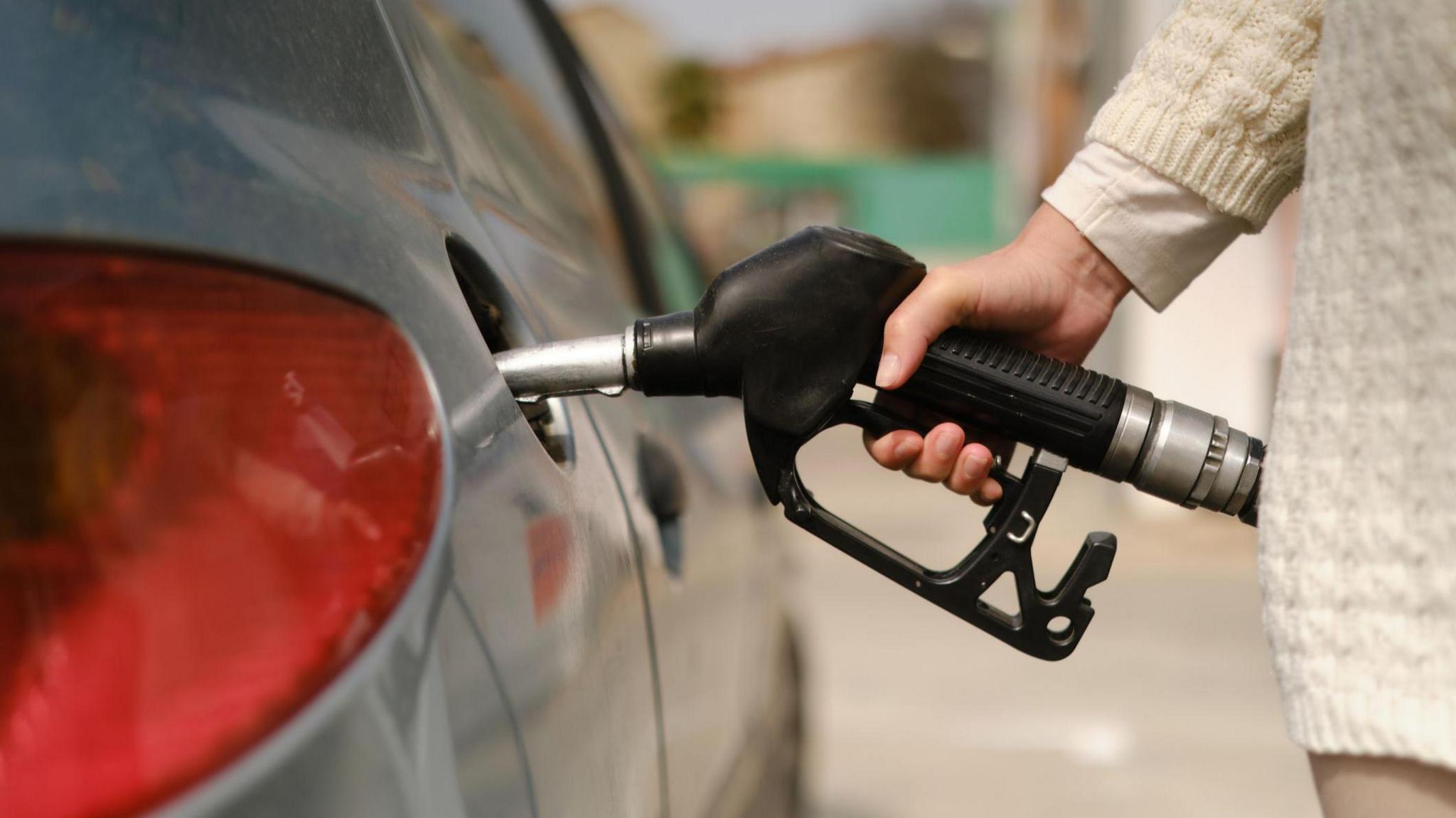'My company might not survive a fuel duty hike'
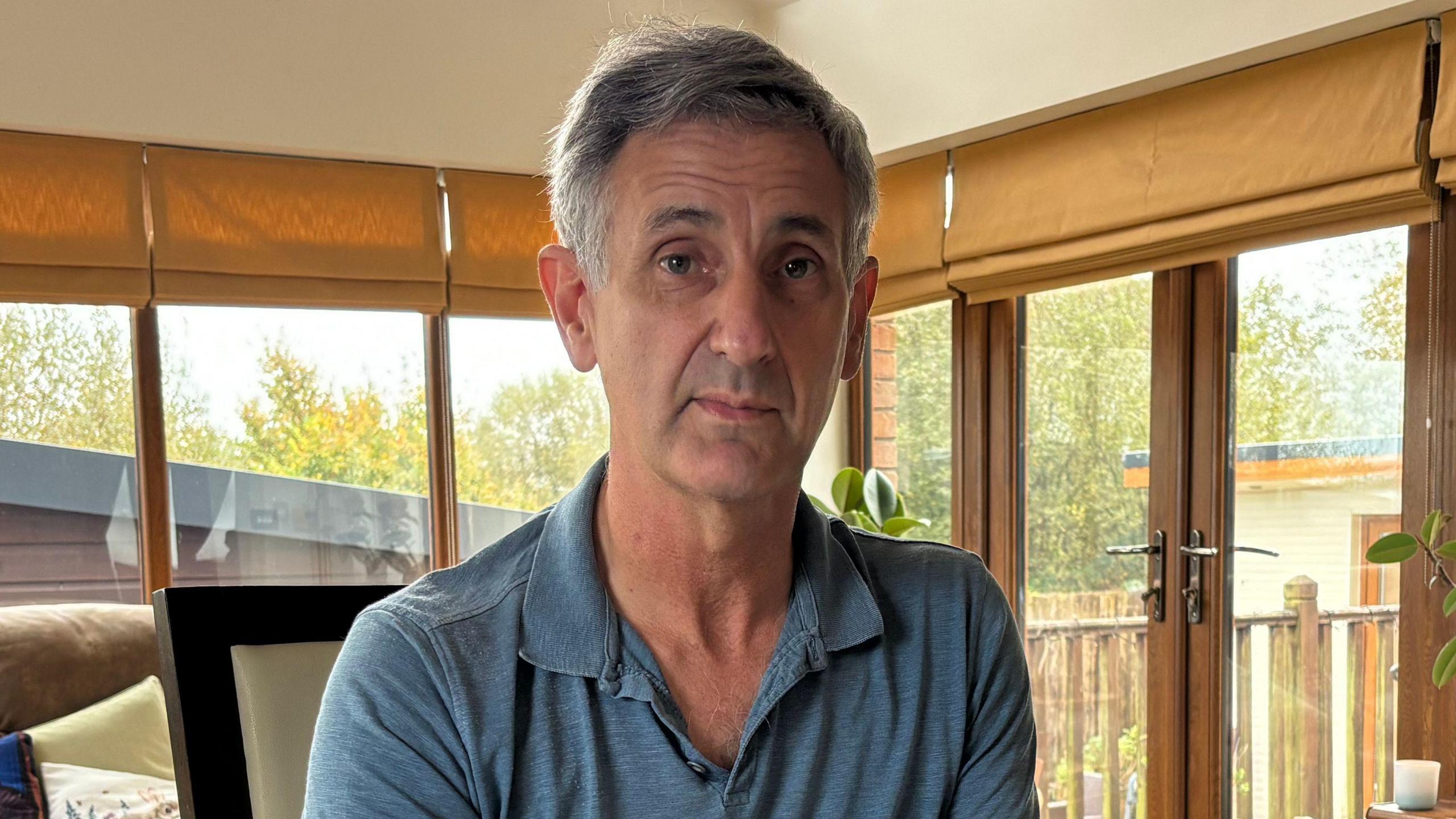
Lyn Davies says he's not sure if his taxi firm will survive if there is price hike on fuel duty
- Published
The owner of a family-run taxi firm says his company may not survive if fuel duty goes up in next week's Budget.
Lyn Davies, who runs Saron Taxis in Tycroes near Ammanford, Carmarthenshire, said he considered quitting after the last big price hike, following Russia's invasion of Ukraine in 2022.
There has been speculation Chancellor Rachel Reeves will put up fuel duty after successive previous chancellors have kept it frozen for 14 years.
There are also warnings rural parts of Wales would be hit hardest by any rise.
The future of a "temporary" 5p cut to duty, which was brought in due to the war in Ukraine, is also in doubt.
More than half the cost of a tank of petrol or diesel is made up of tax when fuel duty and VAT is taken into account.
"Well, to be honest, I don't think we'd be able to survive," said Mr Davies.
"We probably might have to finish, or certainly cut down, cut cars out of the fleet."
The company spends about £1,000 a week on fuel, with each of its 10 cars averaging about 30,000 miles (48,000km) a year.
Mr Davies said the price of diesel has risen from about 124p to 133.2p in the past five years, with a peak of 192p in the summer of 2022, which hit the company hard.
"We were losing money and I was contemplating finishing with the taxi business because we were not making anything," he said.
The company is limited in what it can pass on to customers, as the rates it can charge for pick-up and distance travelled are set by the local council.
He said the freeze in duty had helped offset other cost increases such as wages, maintenance, insurance and the cars themselves.
"We bought a car three years ago. But when we bought a similar spec car recently the difference was about £4,000," he said.
In the last Budget under the previous, Conservative, government, the former chancellor Jeremy Hunt extended the 5p cut and the wider freeze until March 2025.
He said scrapping them would have led to a 13% increase in duty, which currently stands at 52.95p a litre.
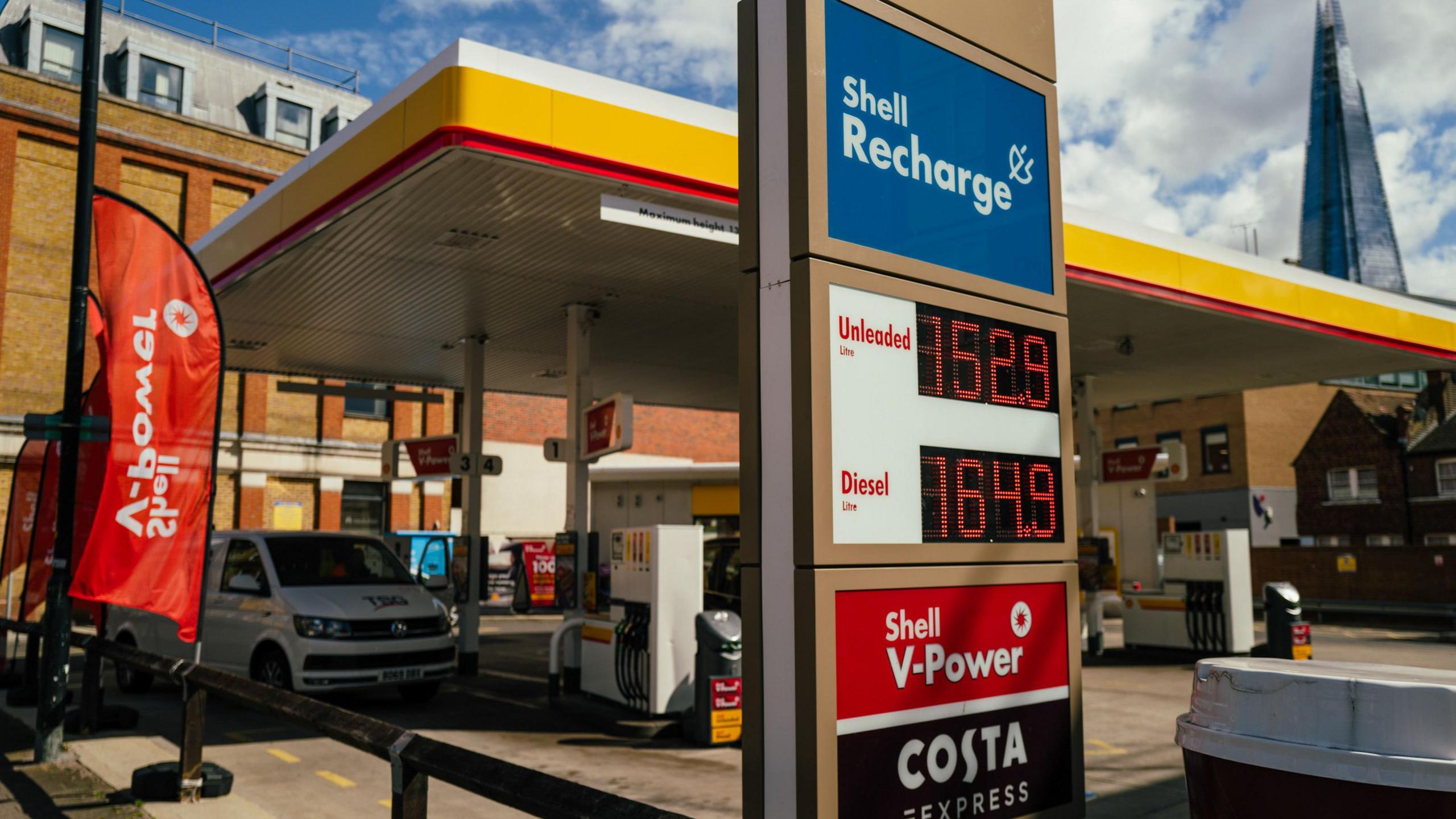
More than half the cost of a tank of petrol or diesel is made up of tax when fuel duty and VAT is taken into account
Ben Lake, the MP for Ceredigion Preseli, said any increase on fuel duty would have a more "significant and broader impact" on people in rural Wales.
"Our part of the world depends very much on the car because of a lack of public transport so any increase will have a disproportionate impact," he said.
Friends of the Earth Cymru Director Haf Elgar said fuel duty unfairly penalised people that need to use the car – those living in rural communities and those with disabilities as well.
"If we are going to tax fuel then it only seems fair that that money goes to other options to make public transport, accessible, available and affordable… so that people have another choice."
The Welsh Conservatives have been asked to comment.
Tax rises and cuts to public spending are expected next Wednesday, with the Chancellor looking to fill what she calls a £40bn "black hole" in public finances.
She blames the shortfall on the previous government.
However, the Conservatives dispute the figure and said they warned all along Labour would put up taxes.
Labour’s options are limited after promising not to raise taxes on working people during the election campaign: in other words the rates of income tax, VAT and National Insurance.
Estimates suggest the fuel duty freeze and temporary 5p cut have cost the Treasury about £130bn over the past 13 years.
The Group Campaign for Better Transport has calculated that scrapping the 5p cut and re-instating annual inflation-linked increased in fuel duty would be worth £4.2bn to the Treasury.
The Treasury said it does not comment on Budget speculation.
Related topics
- Published25 June 2024
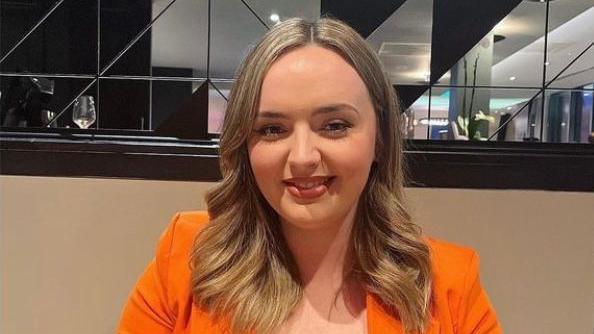
- Published17 June 2024
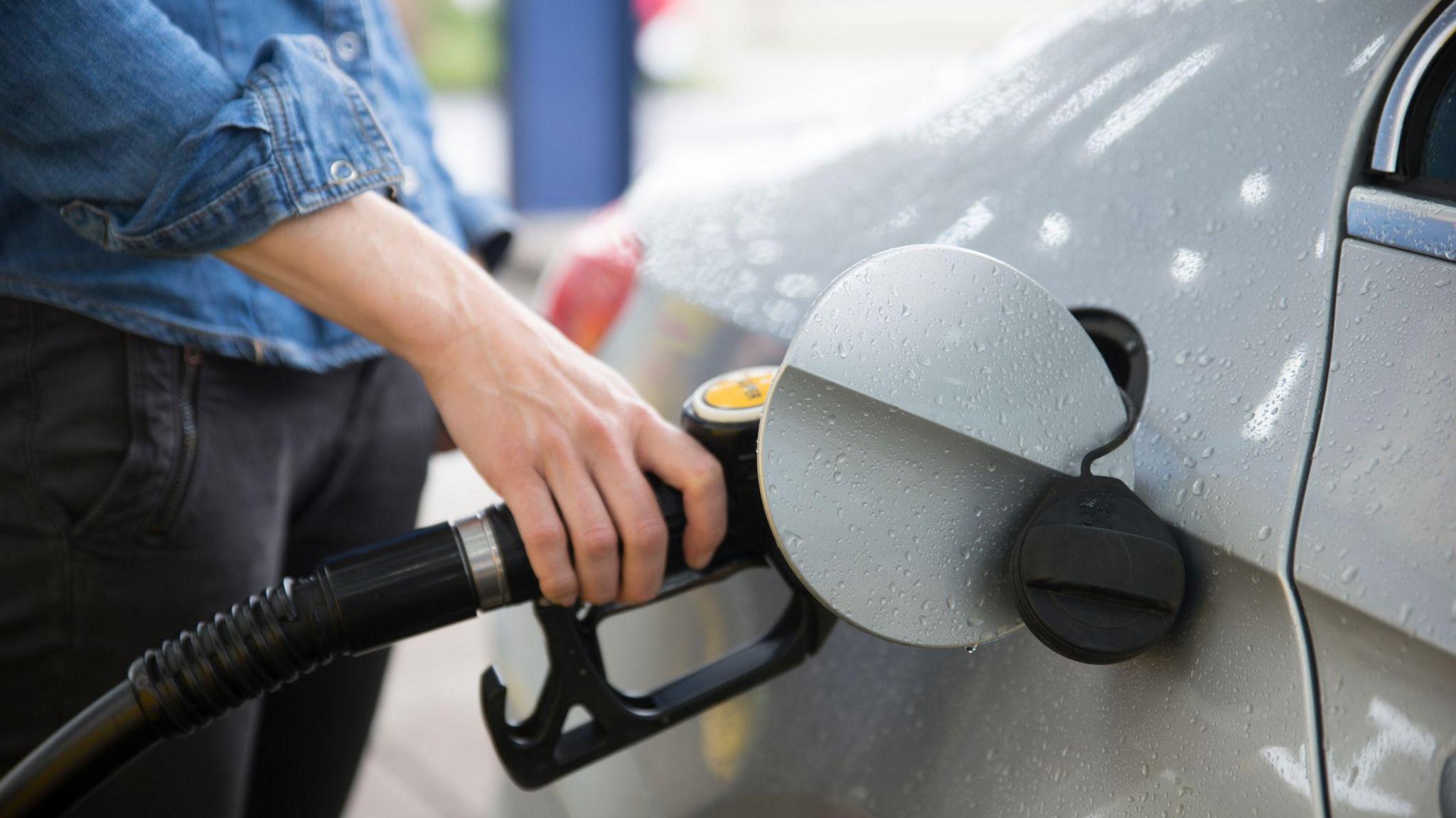
- Published5 June 2024
